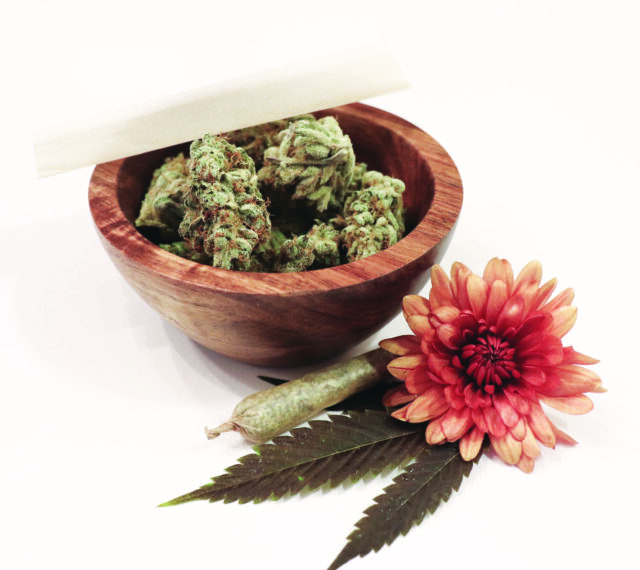
PURIST: What makes this an especially exciting time in the cannabis world?
Mitch Baruchowitz: From a pure growth perspective, watching the illegal market yield to the legal market is the opportunity of a lifetime for anyone who wants rapid growth in the companies they invest in. Cannabis legality also brings with it an incredible number of related benefits, including allowing families—especially those in minority communities who are historically more likely to go to prison for cannabis—to be reunited. Additionally, continued research regarding the medical potential for nontoxic plant-based medicine as an opioid replacement is in a really exciting place right now. We’re also finding that the rapid destigmatization of cannabis in recent years has allowed for people to choose adult-use legal cannabis over alcohol in social situations for the first time ever, opening the door to an entirely new market segment.
PURIST: What should prospective buyers be aware of when looking to invest in the cannabis space?
MB: A new investor is going to want to understand the transition from the illicit market to the legal market, and the normalization of cannabis, since it is the most important shift happening in the industry. We have been on the front lines of the industry for years now, from the first furtive steps in California and Colorado, to a slow walk in newer states like New York, to the gallop of momentum we have now across the cannabis landscape.
PURIST: You’re speaking at the Hampton Cannabis Expo 2021 in East Hampton. What are you most excited about sharing with participants?
MB: We have done a tremendous amount of work to decode the unique aspects of the cannabis industry so that investors can benefit from this rare instance where average investors can participate in a burgeoning industry with a level playing field. We’re excited to share with participants how to take the enormous amount of information that is available in the space and identify and highlight the key insights. We’ll also discuss the emerging consumer landscape and the coming medicalization of cannabinoids, which is something that very few people have heard about because it hasn’t been discussed much on traditional financial outlets.
PURIST: With New York state legalizing, and NYC being one of the biggest cities in the world, how is this new market going to change the industry?
MB: For one thing, New York drives opinion because the financial industry’s heartbeat is here, and its impact is felt nationwide. A lot of conservative financial folks are about to witness firsthand that this industry does not bring any of the negatives that we had been indoctrinated to believe our entire lives. They will see normal folks discuss it and consume it both medically and recreationally. New York has one of the most efficient illegal markets in the world, and watching the legal market overwhelm it will do a lot to help other cities learn how to support a transition to a well- regulated, legal industry.

PURIST: What steps need to be taken for cannabis to be legal nationwide? What’s the best argument for legalization, and what are some of the problem areas that need to be worked out?
MB: The easiest way to end cannabis’s illegal status is simple: Creating a method for removing it from Schedule I. It’s hard to say what other steps need to occur, but this is on the forefront of the political discussion around cannabis. The best argument for legalization is simple—there is $100B of consumption a year in the U.S. already occurring, with only about $26B being legal. So why pretend the other $74B doesn’t exist? It’s better to tax and regulate than simply let it occur illegally where you have no control.
PURIST: What are the trends that you see in products? For instance, after edibles and vaping, what is the next hot cannabis product?
MB: Microdosed products that offer a buzz without a deep, long-lasting high seem to be a hot product for new consumers who want to “start low and go slow.” Ironically, the other trend we’re seeing rev up is exactly the opposite—as the illegal-market consumer comes into the legal market, they want heavy, high-THC products or concentrates. Also, a lot of companies are mixing genetics and trying to find out how far they can push the plant, and we’ve been seeing that when a new flower strain with unique qualities emerges, it tends to be a big hit. This is an industry that’s always been rife with innovation, and we’re just starting to see what’s truly possible. There are currently a lot of government regulations.
PURIST: What are the obstacles that the industry is facing because of that, and what’s the way forward?
MB: In order for the industry to move forward, we need to see the balance between overregulating (i.e. the current legal market) and underregulating (i.e. the illicit market). The overregulation of cannabis causes legal market prices to be higher than necessary, which in turn drives activity to the illegal market. This, in turn, hurts virtually every corner of society and legal market operators. The illegal market has no regulation, and we saw the horrific consequences when people died from consuming illegal vape products that had been made with substances that would never have passed legal-market muster. The only way forward is to find a middle ground that puts the health and safety of the consumer above all else.

PURIST: The CBD-for-wellness market is already massive. In what ways do you see people further using cannabis (whether CBD or THC) for wellness?
MB: Cannabinoid-based wellness is still developing, and we expect to see it used for sports recovery, stress and a variety of ailments that typically are treated with over-the- counter meds. We also expect CBD to start appearing on shelves with ibuprofen, aspirin and other OTC meds as people incorporate it into both reactive and proactive wellness regimens.
PURIST: What would you say to people who are skeptical about the new legalization?
MB: The only way to control cannabis is to regulate it. It is much more harmful to simply allow the illegal market to flourish. If you want to combat underage cannabis use, it must be regulated. If you want to control the types of products people are consuming, or enforce quality control measures, or set standards for impairment, or how to test impairment, it must be regulated. Regulation is the key to ensuring cannabis is safe for consumption and responsibly used by patients and consumers. meridacap.com



